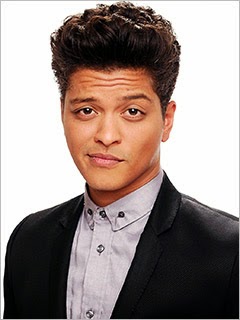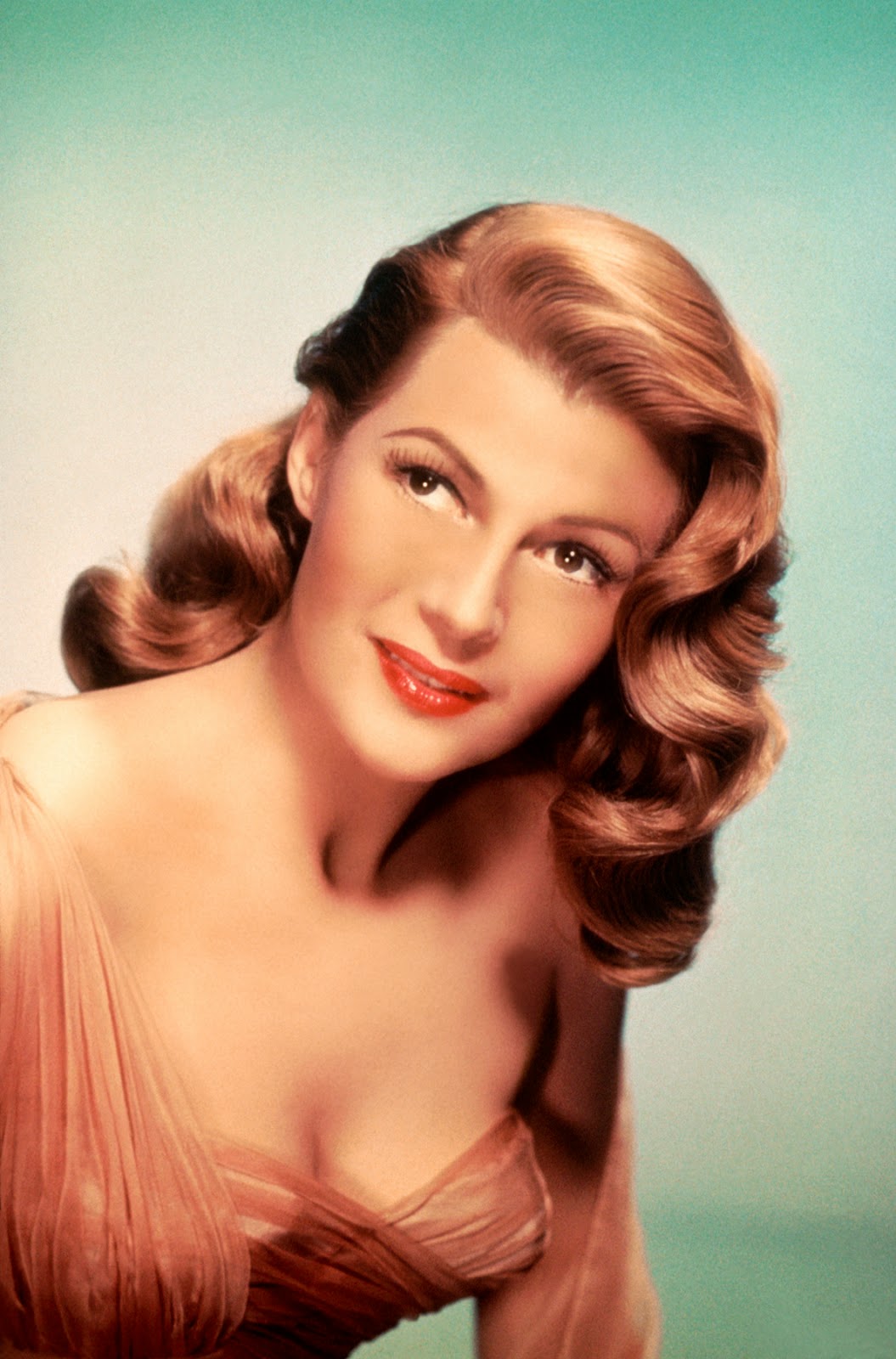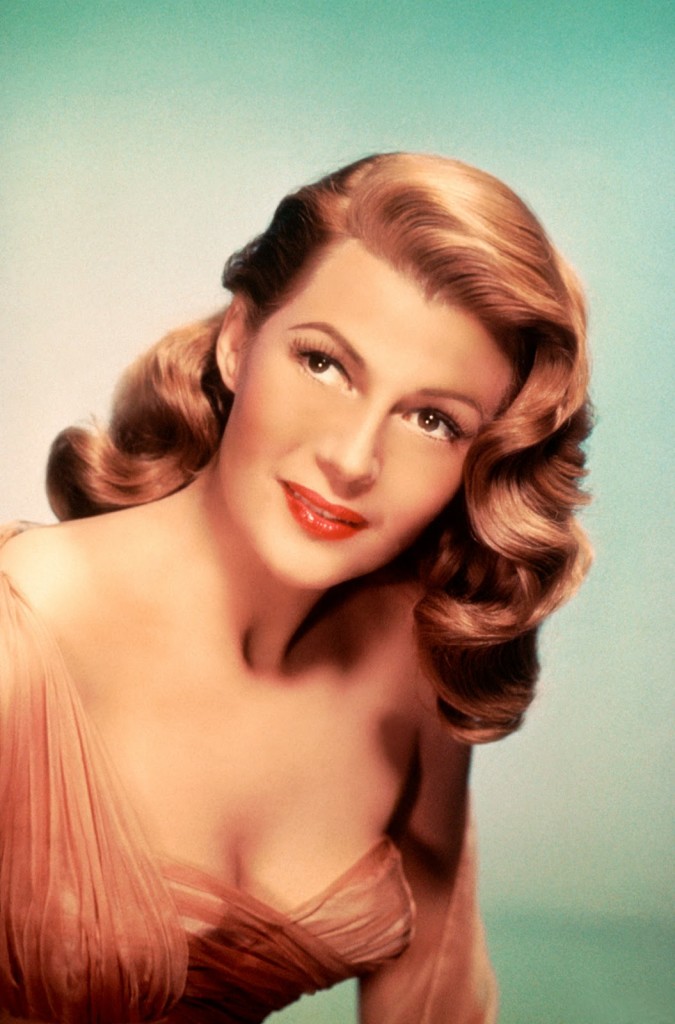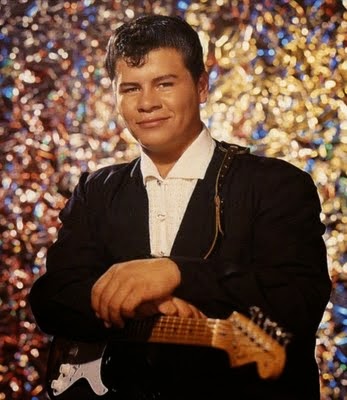Latinos have made history and reached extraordinary heights
in the world of entertainment; however, not all of them did so with the names
they were given at birth. Name changing is a practice that was created during
times of racial segregation. “In the old days of Hollywood,” reports Miguel
Perez, an opinion columnist for Creators.com, “many Latinos often had to choose
between hiding their ethnicities and losing acting jobs.” Perez added that “for
them [Latinos], it was a matter of survival.”
in the world of entertainment; however, not all of them did so with the names
they were given at birth. Name changing is a practice that was created during
times of racial segregation. “In the old days of Hollywood,” reports Miguel
Perez, an opinion columnist for Creators.com, “many Latinos often had to choose
between hiding their ethnicities and losing acting jobs.” Perez added that “for
them [Latinos], it was a matter of survival.”
Rita Hayworth, one of Hollywood’s legendary actresses, was
actually born with the name Margarita Carmen Cansino. As a young girl, she
shortened her name to Rita Cansino and kept the name through her early career.
Her first husband, who was also her manager at the time, convinced her to
change her name. She dyed her hair and changed her name to Rita Hayworth. Soon after,
Hayworth landed a career-changing role in the 1939 film “Only Angels Have
Wings.” Critics praised Hayworth, and shot her into a stratosphere of stardom.
actually born with the name Margarita Carmen Cansino. As a young girl, she
shortened her name to Rita Cansino and kept the name through her early career.
Her first husband, who was also her manager at the time, convinced her to
change her name. She dyed her hair and changed her name to Rita Hayworth. Soon after,
Hayworth landed a career-changing role in the 1939 film “Only Angels Have
Wings.” Critics praised Hayworth, and shot her into a stratosphere of stardom.
While
Hayworth etching her name in the history books, Richard Steven Valenzuela was making
a name for himself, becoming the first Mexican-American star to hit the rock n’
roll stage during the late 1950s. However, few people ever knew was of Mexican
descent. Bob Kean, the head of the Del-Fi record label that signed Valenzuela,
convinced the young star to shorten his name from Richard Valenzuela to Ritchie
Valens. Kean had insisted that the radio DJ’s would not be able to pronounce
his name, and would, therefore, not play his records. Furthermore, Kean thought
that the name change would also allow Valens to appeal to a larger audience.
Valens went on to record several hits during his brief career (cut short by a
tragic plane accident which also took the life of rock ’n roller Buddy Holly),
which included “Come on Let’s Go,” “Donna,” and “La Bamba.
Hayworth etching her name in the history books, Richard Steven Valenzuela was making
a name for himself, becoming the first Mexican-American star to hit the rock n’
roll stage during the late 1950s. However, few people ever knew was of Mexican
descent. Bob Kean, the head of the Del-Fi record label that signed Valenzuela,
convinced the young star to shorten his name from Richard Valenzuela to Ritchie
Valens. Kean had insisted that the radio DJ’s would not be able to pronounce
his name, and would, therefore, not play his records. Furthermore, Kean thought
that the name change would also allow Valens to appeal to a larger audience.
Valens went on to record several hits during his brief career (cut short by a
tragic plane accident which also took the life of rock ’n roller Buddy Holly),
which included “Come on Let’s Go,” “Donna,” and “La Bamba.
Almost ten years later, in 1965, Martin Sheen was nominated
for a Tony Award for his role in the stage play “The Subject Was Roses.”
Sheen’s given name was Ramon Estevez, a name that was kept under wraps, so much
so that one of his sons adopted the new name as his own for his acting career
as well. His son, of course, “Mr. Tiger Blood” himself: Charlie Sheen. The name
“Estevez” didn’t surface until Martin Sheen’s other son decided to build and
maintain an acting career with his father’s given Spanish name. Emilio Estevez
is primarily known for his roles in films such as “The Breakfast Club” and “The
Mighty Ducks;” however, some may remember his name as the highlight of Steve
Butabi’s (Will Ferrell’s character in the film “A Night at the Roxbury”) story,
with the signature yell: “EMMMIIIILLLLLIIIIOOOOO”.
for a Tony Award for his role in the stage play “The Subject Was Roses.”
Sheen’s given name was Ramon Estevez, a name that was kept under wraps, so much
so that one of his sons adopted the new name as his own for his acting career
as well. His son, of course, “Mr. Tiger Blood” himself: Charlie Sheen. The name
“Estevez” didn’t surface until Martin Sheen’s other son decided to build and
maintain an acting career with his father’s given Spanish name. Emilio Estevez
is primarily known for his roles in films such as “The Breakfast Club” and “The
Mighty Ducks;” however, some may remember his name as the highlight of Steve
Butabi’s (Will Ferrell’s character in the film “A Night at the Roxbury”) story,
with the signature yell: “EMMMIIIILLLLLIIIIOOOOO”.
 In present day, a Latino/a
In present day, a Latino/achanging his or her name for “success” in the entertainment industry is still
common practice. One of today’s hottest pop stars is Peter Hernandez. He is the
son of a Puerto Rican Jewish percussionist from Brooklyn and singer/dancer from
the Philippines who met in Hawaii. Hernandez, better known by his stage name
Bruno Mars, said in an interview with GQ that he changed his name to avoid
being stereotyped by race. “Your last name’s Hernandez, maybe you should do
this Latin music, this Spanish music… Enrique [Iglesias] is so hot right now,”
recalled Mars. He added that the name Bruno was a nickname he picked up as a
kid. The pop star also said he chose the name “Mars” because he figured the
“best way to avoid being stereotyped by race is to sound as though you come
from a different planet altogether.”
Unfortunately,
celebrities aren’t the only people whose names can affect their careers.
According to a study conducted at MIT and the University of Chicago, “names
that sounded African American got the short end of the shrift when it came to
the hiring process.” The researchers found that out of the 5,000 fake resumes
they sent out, the ones with names like Tyron or Tamika were less likely to get
calls than the Anglo-sounding names. In addition, researchers found that
qualifications did not seem to have much of an impact. Furthermore, Tammy
Kabell, a resume consultant, reported that following 9/11 she noticed a
particular bias against Muslim/Arab sounding names. She recalled a Pakistani electrical
engineer named Raheem who tried looking for employment for a year and a half
and was only able to land a job as a cleaning staff supervisor.
celebrities aren’t the only people whose names can affect their careers.
According to a study conducted at MIT and the University of Chicago, “names
that sounded African American got the short end of the shrift when it came to
the hiring process.” The researchers found that out of the 5,000 fake resumes
they sent out, the ones with names like Tyron or Tamika were less likely to get
calls than the Anglo-sounding names. In addition, researchers found that
qualifications did not seem to have much of an impact. Furthermore, Tammy
Kabell, a resume consultant, reported that following 9/11 she noticed a
particular bias against Muslim/Arab sounding names. She recalled a Pakistani electrical
engineer named Raheem who tried looking for employment for a year and a half
and was only able to land a job as a cleaning staff supervisor.
On Learn to be Latina, Hanan will go from a Lebanese name to a Latina name, facing herself in the same position that this stars have face. Com and see her story at Mialgro Theatre until May 31st. For tickets call 503- 236-7253, click here or visit www.milagro.org




